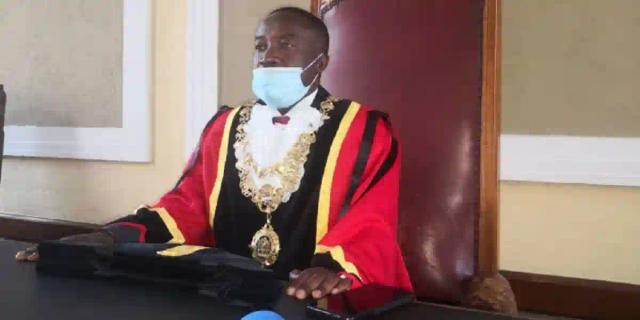Harare And Mutare Councils To Elect New Mayors And Deputies Today

Harare and Mutare city councils are expected to elect new mayors and deputy mayors today following the recent harmonised elections. The opposition Citizens Coalition for Change (CCC) dominates both boards, maintaining its hold over urban areas nationwide.
In Harare, 40 out of 59 sworn-in councillors are from the CCC, while ZANU PF has five councillors. Additionally, 14 councillors were co-opted through the women’s quota system, with 10 from the CCC and four from ZANU PF. In Mutare, all 19 seats were won by the CCC, including six under the women’s quota system.
CCC president Nelson Chamisa has reportedly endorsed Ian Makone as the mayor of Harare, with most councillors at Town House endorsing him as well. In Mutare, Simon Chabuka is expected to continue as mayor for continuity and transparency.
Residents and Ratepayers’ organisations have expressed the need for strong and effective leadership at the councils, emphasizing the importance of delivering quality services and promoting community unity. United Mutare Residents and Ratepayers Trust official Edson Dube told NewsDay that they needed firm leaders at the council. Dube said:
We need firm people, we want leadership which can take council to the next level. We have noticed a lot of improvement in the last few years at Mutare City Council and they have been working very hard. Appointment of the mayor ship should be purely on merit. We want leadership which can deliver on service delivery.
Harare Residents Trust (HRT) director Precious Shumba said the new mayor should be a unifier. Shumba said:
Residents want service delivery to be top-notch across the board. The mayor is the chief policymaker of a city or municipality. Given that responsibility, a mayor is supposed to be a unifier, inclusive and experienced to handle public affairs.
Poor Service Delivery
Opposition party councillors have faced criticism from ZANU PF, accusing them of mismanaging urban councils. However, the opposition has responded by stating that the central government’s lack of funding for devolution has hindered their development programs. According to the Constitution of Zimbabwe, local government authorities are entitled to receive 5 percent of the nation’s total budget. This allocation is intended to support their operations and promote local development. They are also allowed to raise revenue through property taxes, service charges, business licenses, local sales taxes, grants and transfers, fines and penalties, leasing public assets, local tourism taxes, and taxes on lotteries and gambling activities.
The election of new Mayors and their deputies presents an opportunity for local authorities to address the challenges faced by their respective cities and work towards improving service delivery and overall governance.





